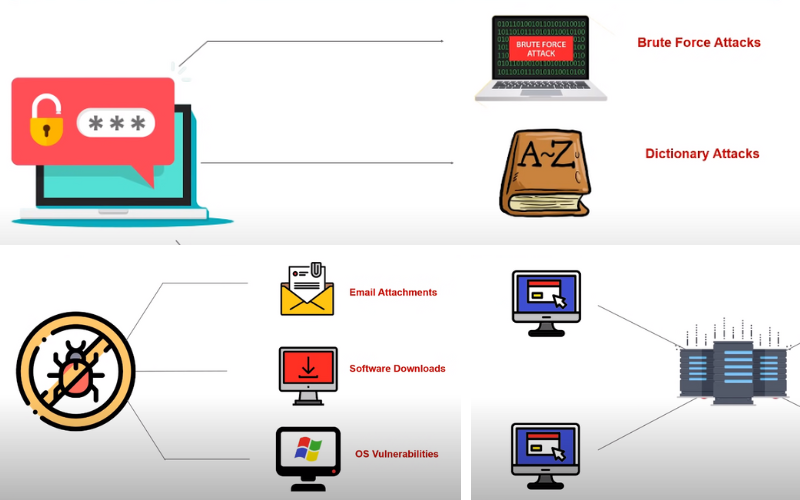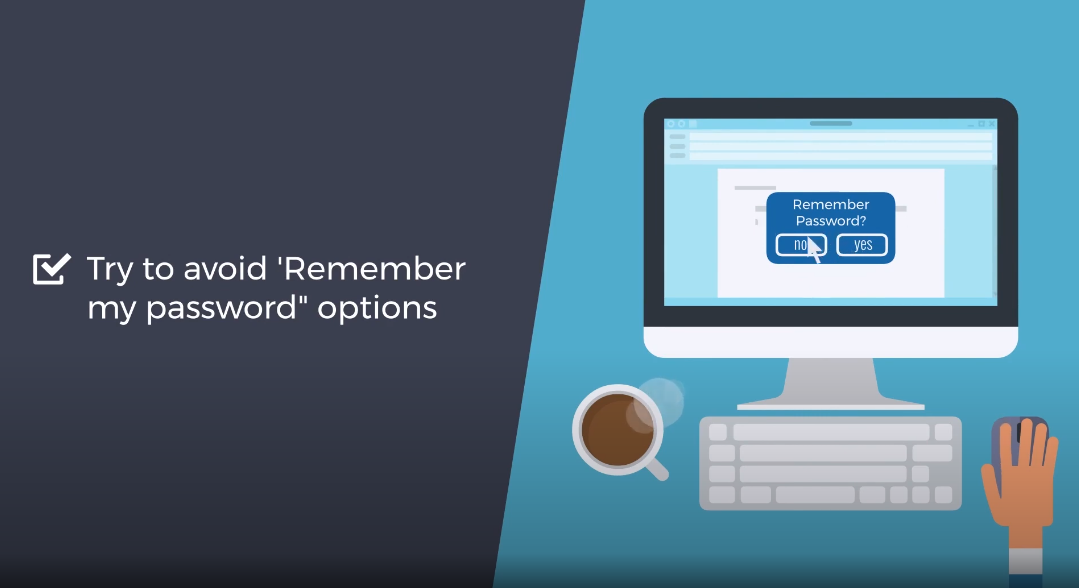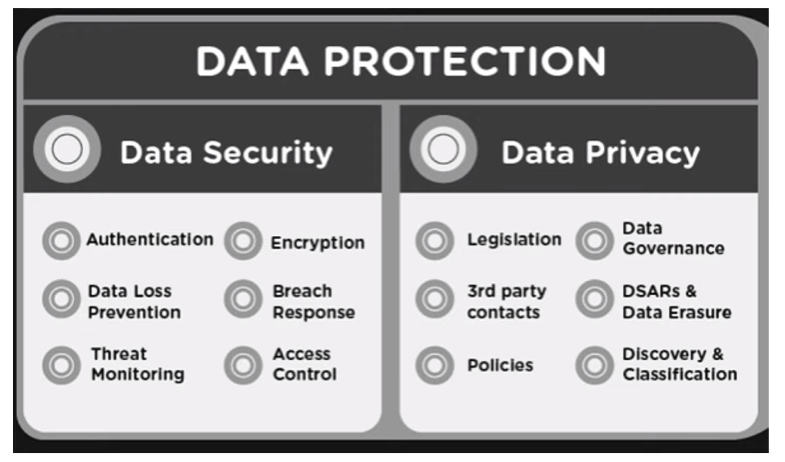importance of Data Security
Data security is important because it ensures that sensitive information is protected from unauthorized access, theft, or misuse. In today’s digital age, businesses and individuals store vast amounts of personal and confidential information online, including financial data, health records, and intellectual property. Without proper safeguards in place, this data can be vulnerable to cyber attacks, data breaches, and identity theft. Maintaining robust data security measures is essential for protecting both personal and business assets, maintaining customer trust, and complying with legal and regulatory requirements.
Common Threats To Data Security

There are many common threats to data security, including:
- Malware and viruses: Malware and viruses are malicious software programs that can infect your computer or network and steal sensitive information or damage your system.
- Phishing attacks: Phishing attacks are fraudulent attempts to obtain sensitive information, such as usernames, passwords, and credit card numbers, by posing as a trustworthy entity in an email or other electronic communication.
- Social engineering: Social engineering is the use of psychological manipulation to trick individuals.
Data Breaches Impact on Individuals And Businesses

Data breaches can have a significant impact on both individuals and businesses. For individuals, their personal information, such as social security numbers, credit card information, and login credentials, can be stolen and used for identity theft or financial fraud. This can result in financial losses, damage to credit scores, and other negative consequences. For businesses, data breaches can result in the loss of sensitive information, such as customer data and trade secrets. This can lead to reputational damage, legal liabilities, and financial losses.
Understanding Data Security
Data security is the practice of protecting digital information from unauthorized access, theft, and corruption. It involves implementing various measures, such as encryption, firewalls, and access controls, to ensure that sensitive data is kept safe and secure. Data security is crucial for individuals and businesses alike, as it helps to prevent data breaches and the associated negative consequences. To ensure data security, it is important to stay informed about the latest threats and vulnerabilities and to implement best practices for data protection.
How To Assess The Level of Data Security In Your System?
There are several ways to assess the level of data security in your system:
- Conduct a security audit: This involves reviewing all the security measures in place and identifying any vulnerabilities or weaknesses that could be exploited by cybercriminals.
- Perform penetration testing: This involves attempting to hack into your system to identify any weaknesses and vulnerabilities that could be exploited by attackers.
- Review your access controls: Ensure that only authorized individuals have access to sensitive data and that access is restricted based on job roles.
Best Practices for Data Security

- Password Management
- Choosing strong passwords
- Password hygiene best practices
- Two-Factor Authentication
- Encryption
- Regular System Updates
- User Training
Common Threats to Data Security
- Malware
- Phishing Attacks
- Social Engineering
- Insider Threats
- Physical Security Threats
Preventing Data Breaches
- Developing a comprehensive security plan
- Identifying potential security risks
- Implementing data security policies and procedures
- Regularly monitoring and testing the security system
Data Breach Response
- Identifying a data breach
- Containment and mitigation
- Notification of affected parties
- Investigation and post-breach analysis
The Future of Data Security
- The Role of artificial intelligence in data security
- The impact of data privacy regulations
- Emerging technologies in data security
Conclusion
In the event of a data breach, it’s crucial to take swift action to protect yourself. Changing your passwords, contacting your financial institutions, monitoring your accounts, and considering additional measures like fraud alerts or credit freezes can all help minimize the damage from the breach. Remember to stay vigilant and report any suspicious activity immediately.
Frequently Asked Questions
What is the difference between data privacy and data security?

Data privacy refers to the protection of personal information from being accessed, used, or shared without the individual’s consent. It involves ensuring that sensitive data is only used for its intended purpose and is kept confidential. On the other hand, data security refers to the measures taken to protect data from unauthorized access, alteration, or destruction. It involves implementing security policies and procedures, monitoring and testing the security system, and responding to data breaches.
How do I know if my data has been breached?
There are several signs that your data may have been breached, including:
- Unusual activity on your accounts, such as unauthorized purchases or withdrawals.
- Receiving notifications from companies or organizations that your data has been compromised.
- Suspicious emails or texts requesting personal information or containing links or attachments.
- Changes to your credit score or credit report that you cannot explain.
- Unfamiliar accounts or charges on your credit report.
How can I protect my data?
There are several steps you can take to protect your data:
- Use strong and unique passwords for all your accounts, and enable two-factor authentication whenever possible.
- Be cautious when sharing personal information online, especially on social media.
- Avoid clicking on links or downloading attachments from suspicious emails or texts.
- Regularly monitor your financial accounts and credit reports for any unusual activity.
- Keep your computer and mobile devices up-to-date with the latest security software and patches.
What should I do if I experience a data breach?
If you experience a data breach, it’s important to act quickly to minimize the damage. Here are some steps you can take:
- Change your passwords for all affected accounts immediately.
- Contact your bank or credit card company to report any fraudulent activity and freeze your accounts if necessary.
- Monitor your accounts and credit reports closely for any further signs of unauthorized activity.
- Consider placing a fraud alert or credit freeze on your credit reports to prevent further damage.
